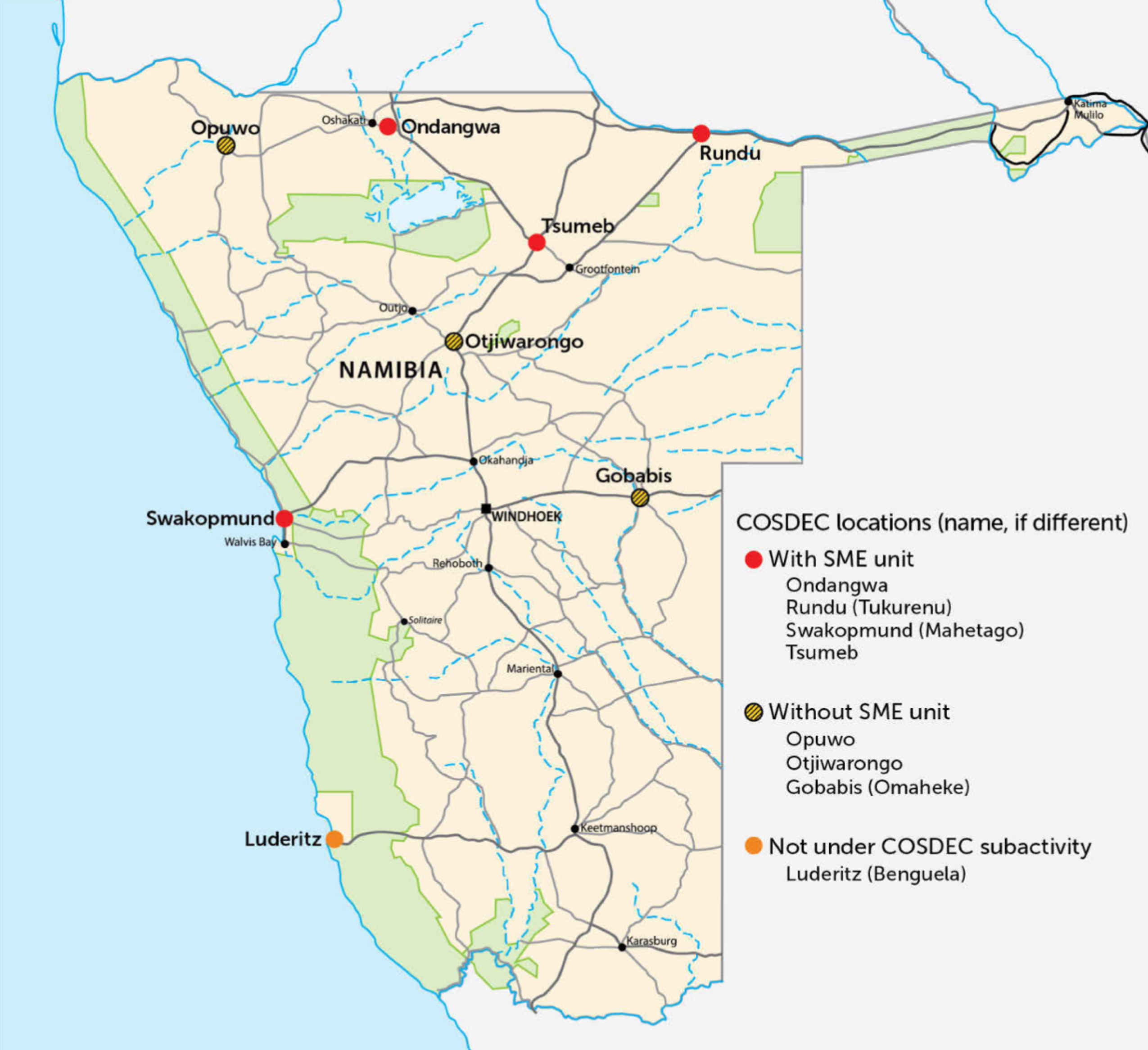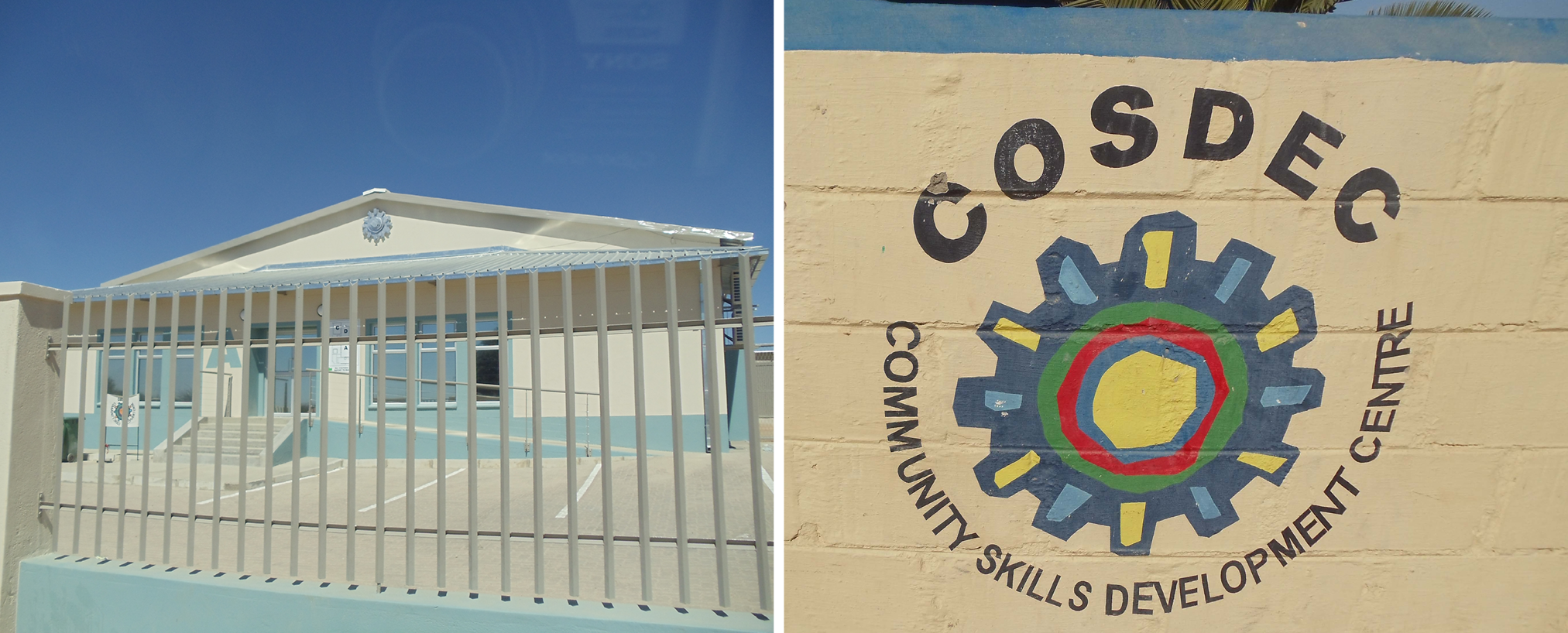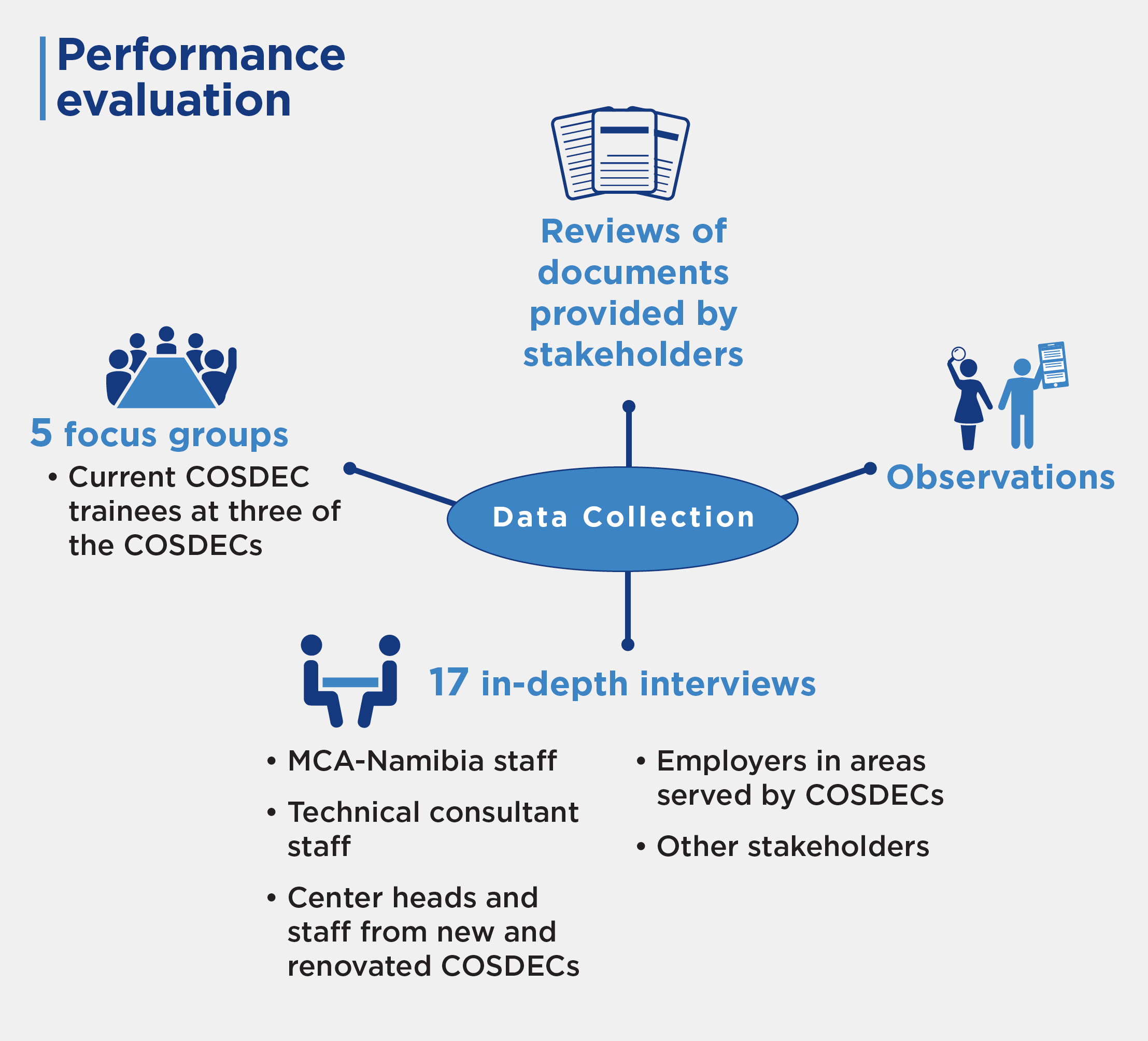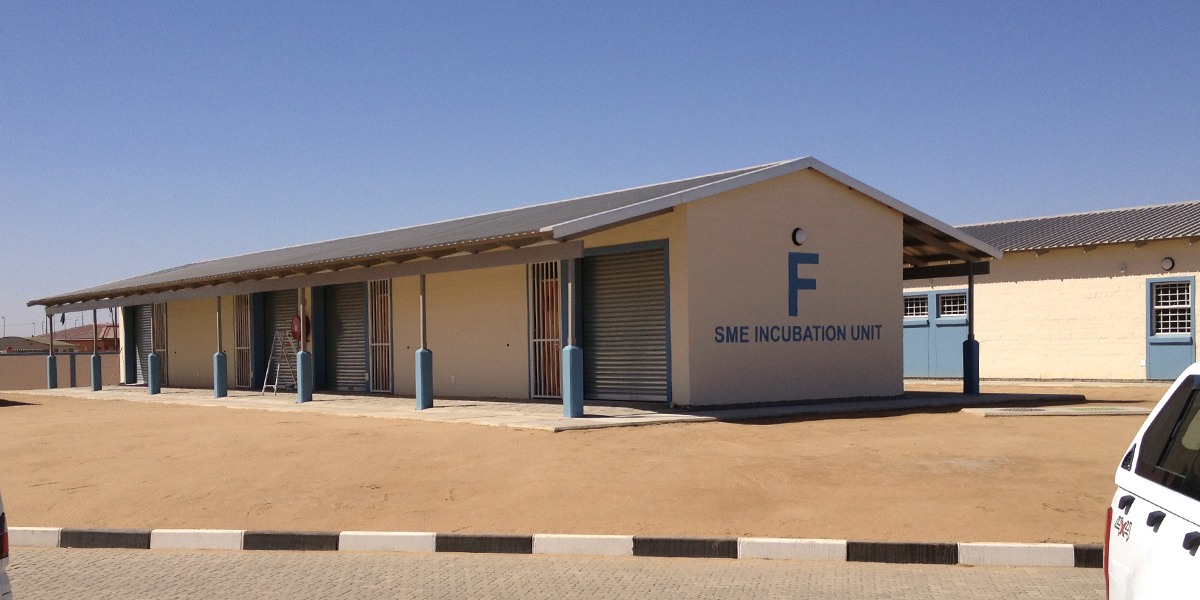Program Overview
MCC’s $295.7 million Namibia Compact (2009-2014) funded the $138.6 million Education Project, which included the $16.8 million Community Skills Development Center (COSDEC) Sub-Activity. The COSDEC sub-activity was designed to provide infrastructure support to vocational institutions that target marginalized populations (especially out-of-school youth) and technical support to training staff and administrators, resulting in improved management practices and training quality, increased training availability and enrollment, and increased employment and enrollee earnings.
Evaluator Description
MCC commissioned Mathematica to conduct an independent interim performance evaluation of the COSDEC sub-activity. Full report results and learning: https://data.mcc.gov/evaluations/index.php/catalog/199.
Key Findings
Construction, Renovation and Retooling
- Seven COSDECs were built or renovated largely according to plan.
- Retooling COSDECs with new tools and equipment was not successful.
Technical Assistance
- Some technical assistance aspects—such as management and budgeting, formal registration, and instructor training—were delivered as designed and well received. However, there is a need for additional support for instructor training and trainee recruitment.
Registration and Sustainability
Evaluation Questions
This interim performance evaluation was designed to answer the following questions that will inform the final evaluation:
- 1
Was the COSDEC sub-activity implemented as planned? - 2
How were the new and renovated COSDECs managed?
Detailed Findings
Construction, Renovation and Retooling

The two main components of infrastructure improvement under the sub-activity were the construction and renovation of COSDECs and retooling them with new equipment. The construction and renovation of the physical infrastructure in all seven COSDECs was implemented as planned. The only substantial change was in the timeframe, with construction completed a few months after originally scheduled. All respondents strongly supported the investments made in building and renovating COSDECs, and several COSDEC managers expressed gratitude for this investment. Respondents agreed the new buildings improved potential trainees’, employees’ and the community at large’s perceptions of COSDECs. The infrastructure investment also included the construction of small- and medium-enterprise (SME) support units in four COSDECs, which were designed to provide business development support to COSDEC trainees and other community members. The SME units were built as planned, but they were not fully operational at the time of data collection.
Respondents universally agreed that the retooling component of the sub-activity was not a success and presented major challenges. First, tools arrived many months after originally expected. The delays meant that the planned training of trainers, and trainings themselves, could only focus on the trainings’ theory components because there were no tools for practice. Second, when tools did arrive, many were in poor condition. A respondent at Millennium Challenge Account (MCA)-Namibia, the implementing entity, familiar with the tool procurement process suggested that it was a mistake to award the procurement to an overseas-based firm that was not well-known and had no local presence, even though this firm offered the lowest price.
Technical Assistance
MCC’s investments in COSDECs included funding for technical assistance. Technical assistance for management and budgeting, formal registration, and instructor training was delivered as designed and well received, despite reports of difficult working relationships among relevant stakeholders. However, the technical assistance was not sufficient to fully address the challenges in these COSDEC management areas, and further support is needed moving forward. COSDEC managers stressed the need for further investment in instructor training, emphasizing the fact that even after building and retooling the COSDECs, well-trained instructors are essential for a well-functioning center. COSDECs also did not receive adequate technical assistance in marketing their new and renovated facilities to potential trainees and the wider community, largely because the sole marketing consultant had neither the time nor resources to tailor advertising for each COSDEC.

Registration and Sustainability
Most respondents were optimistic that COSDECs could maintain their new buildings and equipment, but perceptions of their sustainability were mixed. A respondent from MCA-Namibia noted that COSDECs’ sustainability may hinge on their formal registration with NTA. If COSDECs can register, they will receive substantial added financial support. The technical assistance helped COSDECs progress in the registration process, but most of them had not finished. Thus, meeting the requirements for registration and completing the burdensome registration process might be important priorities for COSDECs. Additionally, registering and accrediting COSDECs is important for Vocational Training Centers, the main publicly funded training institutions, to recognize COSDEC qualifications. Becoming official would enable COSDEC graduates to enroll at higher training levels at Vocational Training Centers without repeating training levels they already completed at COSDECs.
MCC Learning
Key stakeholders should be consulted during project design to ensure investments address existing needs.The technical assistance component could have been better tailored to the Namibian context and COSDECs’ initial capacity.
Evaluation criteria for procurements should be considered carefully The tools purchased were procured from a supplier who won the procurement based on the lowest price, but the tools were low quality and did not meet stakeholder expectations. For procurements where quality can vary substantially, quality should be considered when evaluating potential suppliers or vendors.
Evaluation Methods

The COSDEC sub-activity was evaluated using a performance evaluation. The interim evaluation drew on data collected from a variety of sources in October and November 2014, so the exposure period ranged between one to two months after the Compact ended. Data collection included 17 in-depth interviews, five focus groups, observations, and reviews of documents that stakeholders provided. Interviews were conducted with MCA-Namibia staff, technical consultant staff, center heads, staff from all seven new and renovated COSDECs, employers in areas served by COSDECs, and other stakeholders. Focus groups were conducted with current COSDEC trainees at three of the COSDECs, two of which had SME units. Focus group participants were selected to reflect a mix of training skills. Six to ten COSDEC trainees were invited for each focus group, and between six and eight of them participated.
Next Steps
A quantitative outcomes analysis is planned for the COSDEC sub-activity. This analysis will be based on a tracer survey that seeks to measure key outcomes of the first cohort of COSDEC trainees who received training after the new and renovated centers were completed. A second round of qualitative data collection is planned to follow up on the ongoing management of COSDECs and help interpret the results of the outcomes analysis. Results are expected to be available in 2017.
2021-002-2515


